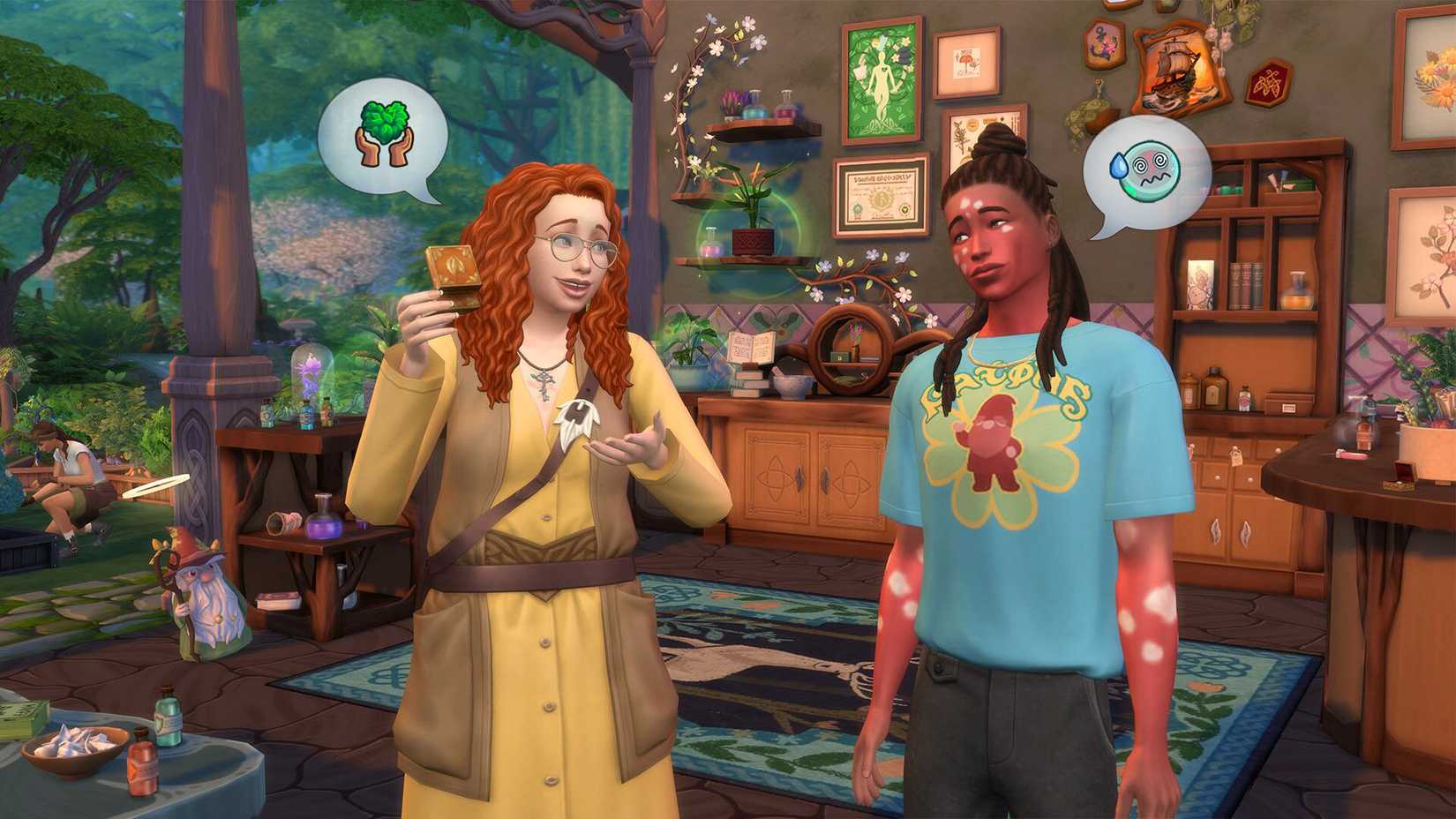Band-Aid on a Gaping Wound: Why Burying The Sims 5 is a Flawed Strategy for a Failing Franchise
Popular Now
 League of Legends
League of Legends
 Toca Boca World
Toca Boca World
 Free Fire
Free Fire
 CarX Street
CarX Street
 Black Myth: Wukong
Black Myth: Wukong
 BeamNG.drive
BeamNG.drive
 EA SPORT FC 25
EA SPORT FC 25
 Stumble Guys
Stumble Guys
 Gacha Club
Gacha Club
 Rust
Rust
 In a surprising move that has sent shockwaves through the gaming community, Electronic Arts (EA) has publicly announced that it has no plans to develop a traditional sequel, The Sims 5. Instead, the company has stated that it will be focusing its efforts on a new, live-service approach to the franchise, with all future content and technological advancements being funneled into the existing The Sims 4. This decision, which has been met with both cautious optimism and widespread criticism, is a major shift in strategy for a franchise that has been built on a numbered sequel model for over two decades. While EA’s rationale is to avoid forcing players to “start from scratch,” this decision feels like a superficial solution to a much deeper and more fundamental set of problems that have plagued The Sims 4 and the franchise as a whole. This is a crucial piece of The Sims news that every fan of the life simulation genre needs to understand.
In a surprising move that has sent shockwaves through the gaming community, Electronic Arts (EA) has publicly announced that it has no plans to develop a traditional sequel, The Sims 5. Instead, the company has stated that it will be focusing its efforts on a new, live-service approach to the franchise, with all future content and technological advancements being funneled into the existing The Sims 4. This decision, which has been met with both cautious optimism and widespread criticism, is a major shift in strategy for a franchise that has been built on a numbered sequel model for over two decades. While EA’s rationale is to avoid forcing players to “start from scratch,” this decision feels like a superficial solution to a much deeper and more fundamental set of problems that have plagued The Sims 4 and the franchise as a whole. This is a crucial piece of The Sims news that every fan of the life simulation genre needs to understand.
The reasoning behind EA’s decision, as explained by executives like Kate Gorman, is that the company doesn’t want to “reset” the progress of its over 80 million Sims 4 players. The idea is that players have invested thousands of hours and hundreds of dollars into building their homes, creating their families, and buying a mountain of downloadable content (DLC). Forcing them to start over with a brand new, expensive game would be seen as a betrayal. While this is a valid point, it ignores the fact that a large portion of the community has been begging for a new game for years. The announcement that The Sims 5 is not happening is not a solution; it’s a symptom of a larger problem: EA’s unwillingness to address the core issues that have made The Sims 4 a frustrating and unfulfilling experience for many players.
 The Gaping Wounds of The Sims 4
The Gaping Wounds of The Sims 4
The announcement that a new game isn’t coming feels like a “band-aid” because it fails to address the very real and long-standing criticisms of The Sims 4. The game, which was released in an incomplete state back in 2014, has been heavily criticized by players for a number of reasons:
- The Base Game is Lacking: The original base game of The Sims 4 was missing many of the core features that were staples of previous titles, such as pools and toddlers. While many of these features have been added over the years, the game’s initial launch left a sour taste in the mouths of many long-time fans.
- The “Expansion-for-an-Expansion” Model: The franchise’s monetization model has been a major point of contention. The game has over 19 expansion packs, each costing a significant amount of money. Many of these packs have been criticized for their lack of content, with some fans arguing that they should have been a part of a larger, more comprehensive expansion. This model has led to a feeling of being “nickeled and dimed” by the company.
- Bugs and Performance Issues: Even after years of updates, The Sims 4 is still plagued by a number of bugs and performance issues. The game’s engine is old, and the constant addition of new content has made it a difficult game to run, especially for players with all the packs. This has led to many players relying on mods and custom content to fix the game’s issues, which is not a sustainable or healthy long-term solution.
- Soulless and Lifeless Sims: The core of The Sims franchise is the ability to create unique and interesting characters. However, many players have argued that the Sims in The Sims 4 are “soulless.” The game’s new emotion system was a major selling point, but many players have felt that the emotions are too scripted and that the Sims themselves lack the depth and personality of their predecessors. The game’s lack of a true “open-world” has also been a major point of contention, as it makes the world feel small and disjointed.
 The Flawed Logic of a “Live Service” Model
The Flawed Logic of a “Live Service” Model
While the idea of a live-service Sims game sounds good on paper, it is a flawed strategy that ignores the franchise’s biggest strengths. The appeal of a numbered sequel is that it allows the developers to create a brand new, more technologically advanced game from scratch. It allows them to address the fundamental flaws of the previous title and to build a new engine that is more suited for a modern gaming experience. The decision to bury The Sims 5 means that EA will be stuck with the same aging engine, the same bugs, and the same fundamental design flaws that have been a part of The Sims 4 since its launch. It is an acknowledgment that the game has a gaping wound, and the solution is not to fix it, but to simply keep adding new content in the hopes that no one will notice. It’s an anti-consumer strategy that is more about protecting the company’s financial interests than it is about providing a quality experience for the players. The announcement of “Project Rene,” which is a separate, social-focused platform, is a clear sign that EA is not willing to invest in a new, single-player life simulation game, which is the heart of the franchise. It is a sign that EA is more interested in chasing the “metaverse” and social trends than it is in listening to its core fanbase.
 The history of The Sims franchise is a history of innovation and evolution. Each numbered title has been a major step forward, and the decision to stop this progression is a sad day for the franchise. The community’s love for The Sims 4 is a testament to their dedication, but it should not be mistaken for a sign of a healthy and perfect game. It is a testament to the fact that for many players, it is the only option. By burying The Sims 5, EA is not just abandoning a number; it is abandoning the opportunity to create a truly great game. It is a decision that feels like a band-aid on a gaping wound, and it is a wound that is only going to get worse over time.
The history of The Sims franchise is a history of innovation and evolution. Each numbered title has been a major step forward, and the decision to stop this progression is a sad day for the franchise. The community’s love for The Sims 4 is a testament to their dedication, but it should not be mistaken for a sign of a healthy and perfect game. It is a testament to the fact that for many players, it is the only option. By burying The Sims 5, EA is not just abandoning a number; it is abandoning the opportunity to create a truly great game. It is a decision that feels like a band-aid on a gaping wound, and it is a wound that is only going to get worse over time.









